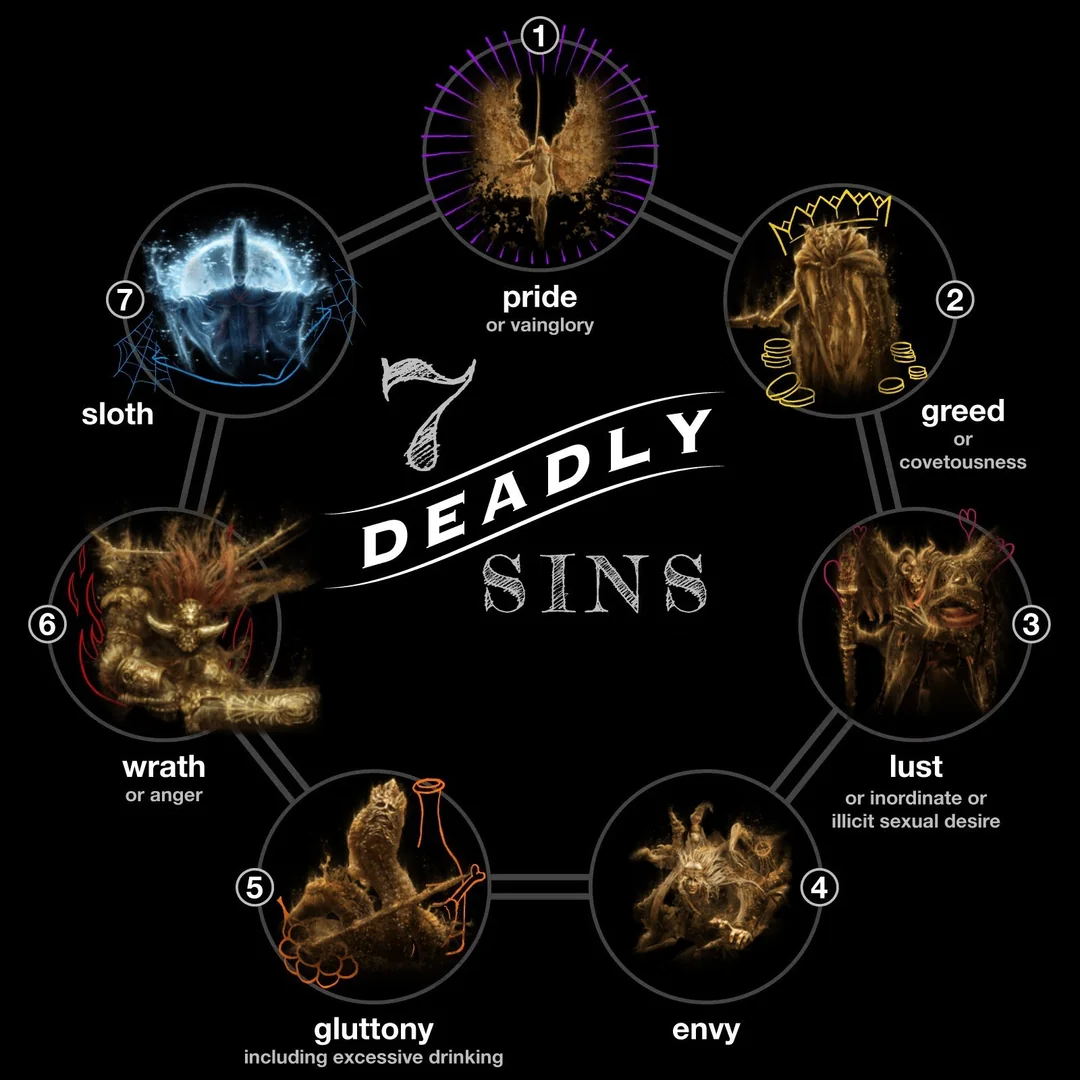The concept of the Seven Capital Sins, also known as the Seven Deadly Sins, has its origins in early Christian teachings. These sins are considered fundamental moral vices that lead to further immoral behavior. Understanding these sins can provide insight into human nature and the ethical dilemmas we face. Here’s a closer look at each of the seven capital sins and their meanings.
1. Pride
Pride is often regarded as the most severe of the capital sins. It is characterized by an excessive belief in one's abilities or superiority, often leading to a sense of entitlement and arrogance. Pride can cause individuals to prioritize their own interests over others and dismiss the need for humility and self-reflection. In a spiritual context, it can create a rift between individuals and their faith.2. Envy
Envy involves feeling discontent or resentment towards others' possessions, qualities, or achievements. This sin can drive individuals to desire what others have, leading to feelings of inadequacy and bitterness. Envy can erode relationships and foster a toxic environment, as it promotes comparison rather than appreciation for one's own life and circumstances.3. Wrath
Wrath, or anger, is an intense emotional response to perceived injustice or wrongdoing. While feeling anger is a natural human emotion, wrath refers to a more destructive form that seeks vengeance or harm against others. This sin can lead to conflicts, violence, and a cycle of retaliation that can be difficult to break.4. Sloth
Sloth represents a lack of motivation or a refusal to act. It is often associated with laziness and apathy, particularly regarding one's responsibilities and duties. In a spiritual sense, sloth can manifest as a neglect of one's relationship with God or a failure to engage in meaningful activities that contribute to personal growth and the well-being of others.5. Greed
Greed, or avarice, is an insatiable desire for material wealth and possessions. It leads individuals to prioritize their own financial gain over ethical considerations and the well-being of others. Greed can result in exploitation, corruption, and a lack of compassion, as individuals become consumed by the pursuit of wealth at any cost.6. Gluttony
Gluttony is excessive indulgence, particularly concerning food and drink. It reflects a lack of self-control and can extend to other areas of life, such as spending or consumption. Gluttony often leads to negative health consequences and can detract from a person's ability to enjoy life’s simple pleasures in moderation.7. Lust
Lust refers to an intense longing or craving for sexual pleasure, often without regard for the emotional or relational aspects of intimacy. While sexual desire is a natural human experience, lust can lead to objectification, infidelity, and the breakdown of meaningful relationships when it is pursued selfishly or obsessively.Conclusion
The Seven Capital Sins serve as a reminder of the potential for moral failure within human nature. They highlight the importance of self-awareness, personal responsibility, and the pursuit of virtues that counteract these vices. By recognizing and addressing these sins, individuals can strive for a more balanced and ethical life, fostering healthier relationships with themselves and others. Understanding these capital sins is not only a reflection of moral teachings but also an opportunity for personal growth and development.Read more :
1= https://checkwebsitedr.com/blogs/what-are-the-7-capital-sins-and-their-meaning/
2= https://checkwebsitedr.com/blogs/what-are-the-5-oceans/
3= https://checkwebsitedr.com/blogs/the-five-pillars-of-islam-a-comprehensive-overview/
4= https://checkwebsitedr.com/blogs/what-are-the-4-types-of-ocd/
5= https://checkwebsitedr.com/blogs/what-are-the-23-flavors-in-dr-pepper/


